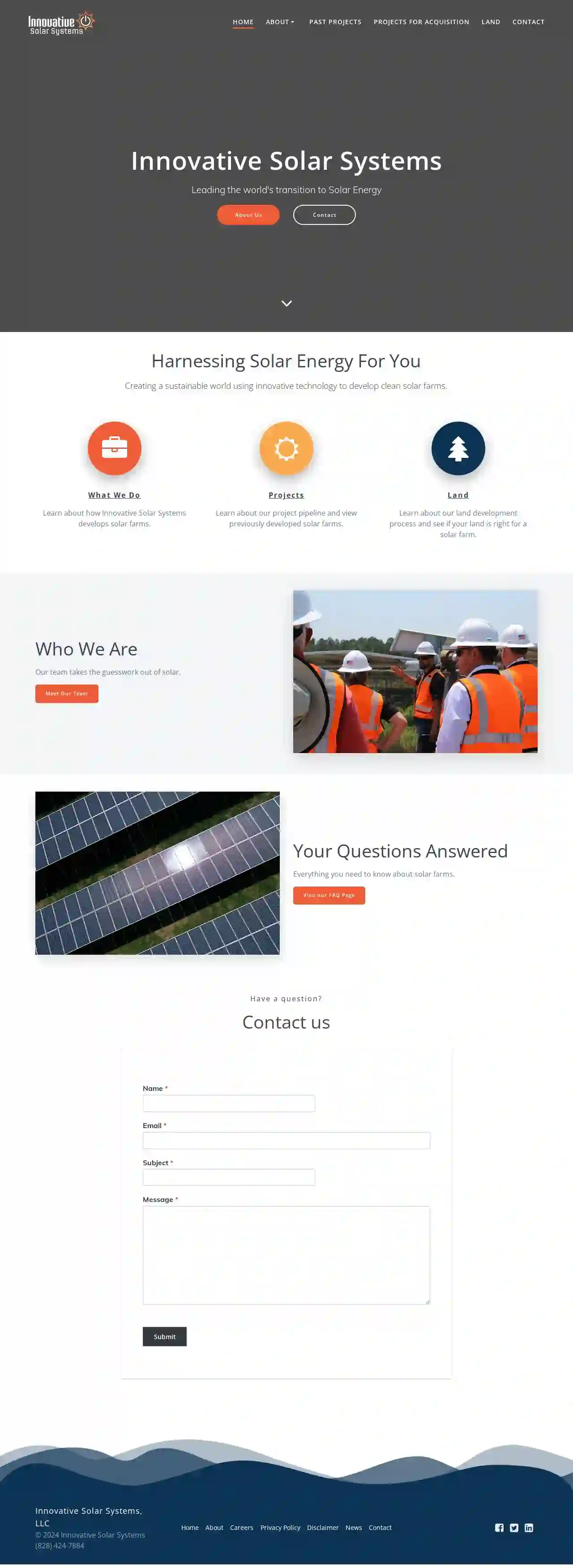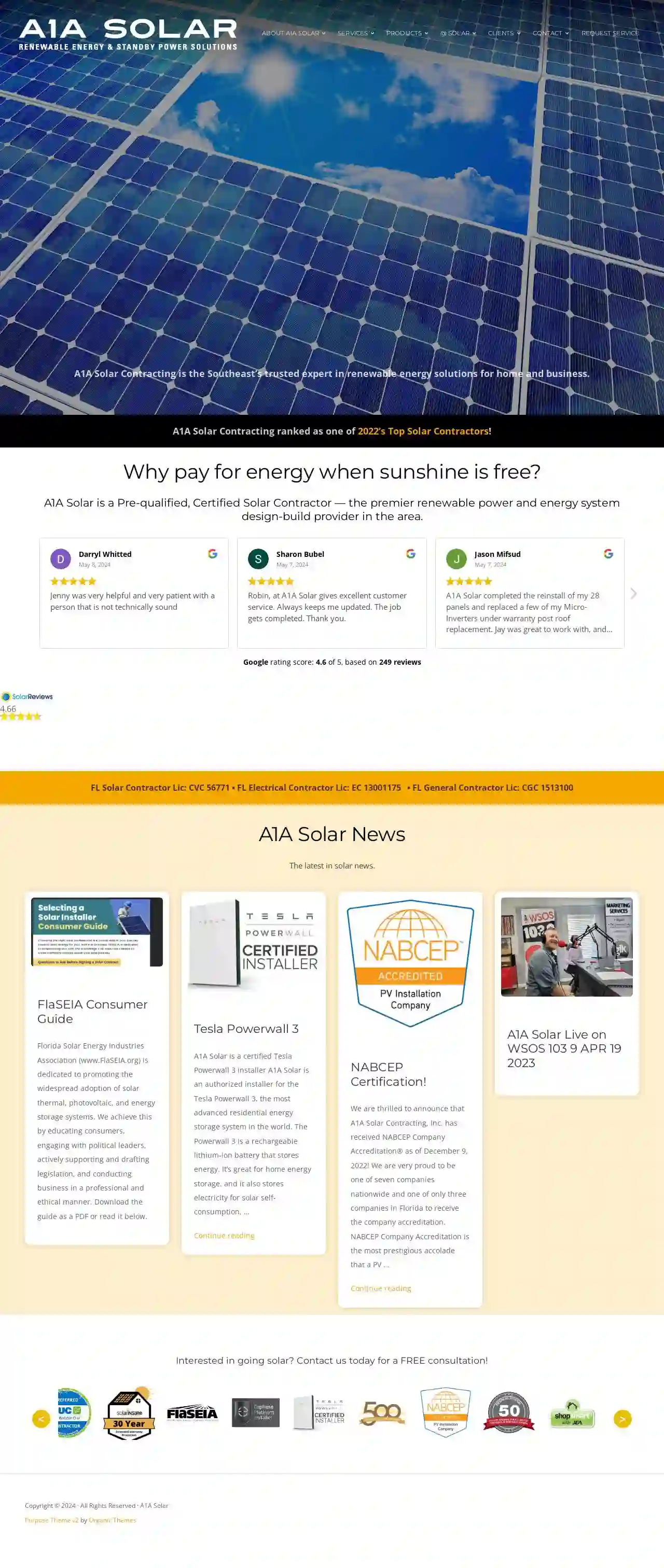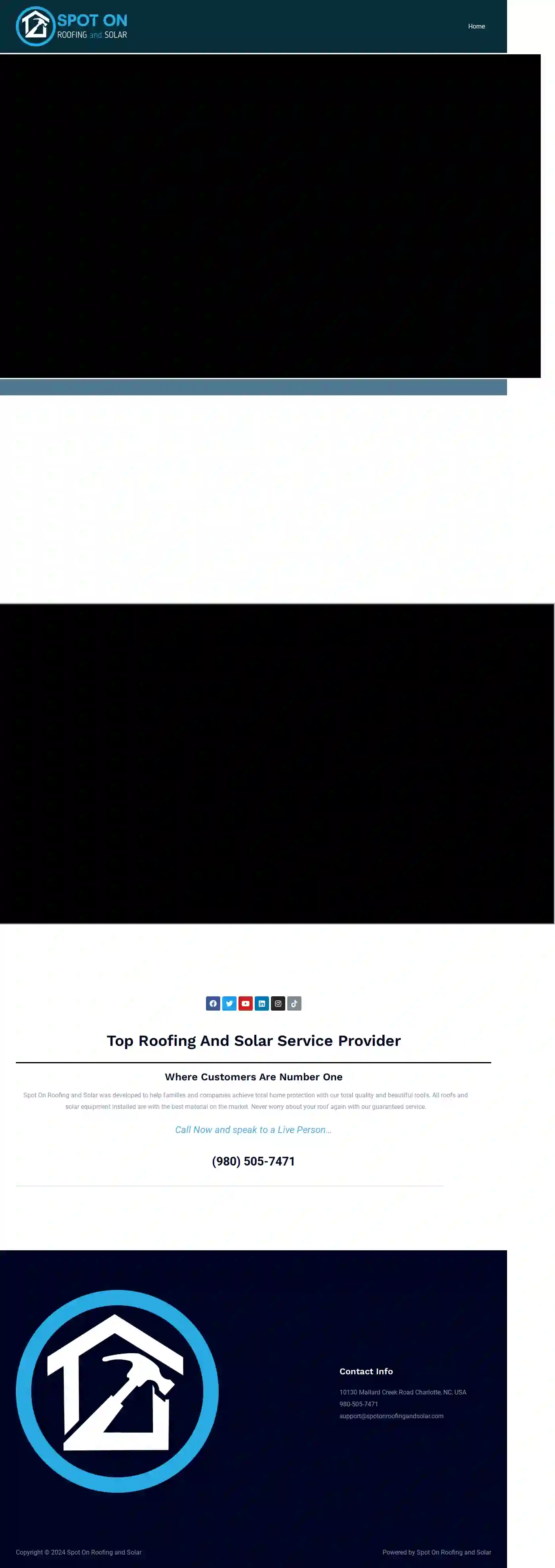Solar Installers Camden
Find Solar Panel Installers in Camden
Receive 3 FREE Solar Installers Near Me quotes for your project today! Compare profiles, reviews, accreditations, portfolio, etc... and choose the best deal.

Lumio Solar Jacksonville
3.76 reviewsLehi, UT, 1550 Digital Drive, Suite 500, 84043, USYour future is bright with solar. Save money, help the planet, and gain energy independence, all with solar. At Lumio, we help homeowners nationwide switch to solar from start to finish as a top 5 private solar company. Formed in 2021 through an acquisition of four regional solar companies, Lumio excels in local and authentic expertise with the advantage of being a national company with stronger buying power. Our leadership team is full of long-time industry experts. Our mission is to deliver solutions that decentralize power, elevate communities, and provide authentic sustainability. You've been renting dirty power for too long, not in control of the inflating cost. We're here to help you take your power back. Your Home Experience, Elevated when you switch to solar with Lumio.
- Services
- Why Us?
- Testimonials
- Gallery
Get Quote
LGCY Power
4.548 reviews3333 Digital Drive #600, Lehi, 84043, USLGCY Power is a leading solar energy company in Charleston, SC, providing residential solar energy solutions. They work with customers to provide clean and affordable electricity, reducing overall utility bills. LGCY Power ensures that homes are energy efficient before installing solar panels and batteries, and they coordinate with local authorities for necessary permits and approvals.
- Services
- Why Us?
- Accreditations
- Our Team
- Testimonials
- Gallery
Get Quote
Spotlight Solar
710 Market Street #30, Chapel Hill, 27516, USSpotlight Solar is a company that specializes in making solar energy more visible and engaging. They create architectural solar structures that complement other sustainability measures and accelerate the adoption of solar energy. Their products are designed to be aesthetically pleasing and functional, providing shade and clean energy for devices. Spotlight Solar aims to inspire more people to consider solar energy for themselves.
- Services
- Why Us?
- Accreditations
- Our Team
- Testimonials
- Gallery
Get Quote
Rhino Renewables Solar & Electric
4.935 reviews340 Merrimon Ave, Asheville, 28801, USRhino Renewables Solar & Electric is a full-service solar design, installation, and electrical contractor based in Asheville, North Carolina. They offer personalized turnkey solar installation experiences, including solar PV, battery backup, generators, EV chargers, and electrical contracting. Their team of dedicated solar professionals is committed to providing education-based sales processes and ensuring peace of mind for their clients. Rhino Renewables is licensed and insured, with a North Carolina electrical license and NABCEP PV installation professional certificate.
- Services
- Why Us?
- Accreditations
- Our Team
- Testimonials
- Gallery
Get Quote
Oklahoma Solar Solutions
512 reviewsN/A, 416 NW 23rd Street, Oklahoma City, 73103, USOklahoma Solar Solutions is an Oklahoman/Veteran owned and operated solar installation company with over 10 years of solar and Information Technology experience. We specialize in highly efficient solar products that will exceed your solar needs while keeping your monthly costs low. We also have experience installing backup batteries and solar attic fans. If you are looking to be on grid or off- we can hook you up!
- Services
- Why Us?
- Accreditations
- Our Team
- Testimonials
- Gallery
Get Quote
Innovative Solar Systems, LLC
4.442 reviews123 Solar Way, Asheville, NC, 28732, USInnovative Solar Systems is a leading company in the transition to solar energy. They harness solar energy using innovative technology to develop clean solar farms. Their team takes the guesswork out of solar, providing comprehensive services including project development, land acquisition, and solar farm creation.
- Services
- Why Us?
- Accreditations
- Our Team
- Testimonials
- Gallery
Get Quote
SolarAIR and Energy
4.511 reviews1156 Bowman Rd, # 271, Mount Pleasant, 29464, USAt Solar Air And Energy LLC, we educate you on your choices for electricity, energy efficiency, and saving money on your monthly electric bill. We are a full-service energy company that is working to provide complete energy solutions. Our professionals will only be focused on your project during the entire time. We make sure that we enter into a long-term partnership with our clients. What sets us apart from other companies is that we always keep ourselves updated. There is special emphasis within our company towards innovation in technology.
- Services
- Why Us?
- Accreditations
- Our Team
- Testimonials
- Gallery
Get Quote
A1A Solar Contracting, Inc.
4.6213 reviews10418 New Berlin Rd, #223, 10418 New Berlin Rd #223, Jacksonville, 32226, USA1A Solar is a trusted expert in renewable energy solutions for home and business. They offer a range of services including solar panel installation, Tesla Powerwall, and SPAN Smart Panel. A1A Solar is a pre-qualified, certified solar contractor with a team of experienced professionals dedicated to providing excellent customer service.
- Services
- Why Us?
- Accreditations
- Our Team
- Testimonials
- Gallery
Get Quote
GreenGo Energy US, Inc
GreenGo Energy Group A/S, Frydenlundsvej 30, Vedbæk, 2950, USGreenGo Energy is a company that specializes in renewable energy solutions, focusing on solar and wind power, battery energy storage systems, and Power-to-X energy plants. They offer a 360° service platform tailored to their clients' investment profiles, including structuring, development, construction, and operations phases. Their mission is to accelerate the green transformation in partnership with visionary investors.
- Services
- Why Us?
- Accreditations
- Our Team
- Testimonials
- Gallery
Get Quote
Spot On Roofing and Solar
514 reviews10130 Mallard Creek Road, Charlotte, NC, USA, 28262, USSpot On Roofing and Solar was developed to help families and companies achieve total home protection with our total quality and beautiful roofs. All roofs and solar equipment installed are with the best material on the market. Never worry about your roof again with our guaranteed service.
- Services
- Why Us?
- Accreditations
- Our Team
- Testimonials
- Gallery
Get Quote
Over 4,210+ Solar Companies on our directory
Our solar installers operate in Camden and surroundings!
SolarCompaniesHub has curated and vetted the Best Solar Contractors near Camden. Find a top & reliable contractor today.
Frequently Asked Questions About Solar Installers
- Use a Directory Like SolarCompaniesHub: We connect you with pre-screened, qualified solar installers in your area.
- Check Online Reviews: Look for positive reviews on Google, Yelp, and other reputable sources.
- Ask for Referrals: Get recommendations from friends, family, or neighbors who have gone solar.
- Verify Credentials: Ensure the installer is licensed, insured, and certified by reputable organizations (e.g., NABCEP in the US).
- Get Multiple Quotes: Compare quotes from at least 3-4 installers to find the best value for your project.
- Ask Questions: Don't hesitate to ask installers about their experience, warranties, and the process they follow.
- Contact SolarCompaniesHub: We make it simple to connect with reputable Solar Installers in your area.
- Get Free Quotes: Request free quotes from multiple installers to compare prices, systems, and warranties.
- Schedule a Site Assessment: A qualified installer will visit your property to assess your roof, energy needs, and discuss your goals.
- Review Your Proposal and Contract: Carefully review the proposed system, financing options, and warranties before signing a contract.
- Installation and Activation: Once the contract is signed, the installer will obtain necessary permits, schedule the installation, and activate your solar system.
- String Inverters: Connect multiple panels in a series (a 'string'). A cost-effective option for simple systems, but a single panel issue can affect the entire string.
- Microinverters: Attach to each individual solar panel, maximizing energy production even if some panels are shaded. They are more expensive but offer greater efficiency and monitoring capabilities.
- Power Optimizers: Similar to microinverters, but less expensive. They optimize the output of each panel and provide individual panel monitoring, but a central inverter is still required.
- Hybrid Inverters: Combine a solar inverter with a battery charge controller, allowing for seamless integration of battery storage.
Will solar panels work during cloudy days or at night?
How do I find a good solar installer near me?
How do I get started with solar panel installation?
What are the different types of solar inverters?
Will solar panels work during cloudy days or at night?
How do I find a good solar installer near me?
- Use a Directory Like SolarCompaniesHub: We connect you with pre-screened, qualified solar installers in your area.
- Check Online Reviews: Look for positive reviews on Google, Yelp, and other reputable sources.
- Ask for Referrals: Get recommendations from friends, family, or neighbors who have gone solar.
- Verify Credentials: Ensure the installer is licensed, insured, and certified by reputable organizations (e.g., NABCEP in the US).
- Get Multiple Quotes: Compare quotes from at least 3-4 installers to find the best value for your project.
- Ask Questions: Don't hesitate to ask installers about their experience, warranties, and the process they follow.
How do I get started with solar panel installation?
- Contact SolarCompaniesHub: We make it simple to connect with reputable Solar Installers in your area.
- Get Free Quotes: Request free quotes from multiple installers to compare prices, systems, and warranties.
- Schedule a Site Assessment: A qualified installer will visit your property to assess your roof, energy needs, and discuss your goals.
- Review Your Proposal and Contract: Carefully review the proposed system, financing options, and warranties before signing a contract.
- Installation and Activation: Once the contract is signed, the installer will obtain necessary permits, schedule the installation, and activate your solar system.
What are the different types of solar inverters?
- String Inverters: Connect multiple panels in a series (a 'string'). A cost-effective option for simple systems, but a single panel issue can affect the entire string.
- Microinverters: Attach to each individual solar panel, maximizing energy production even if some panels are shaded. They are more expensive but offer greater efficiency and monitoring capabilities.
- Power Optimizers: Similar to microinverters, but less expensive. They optimize the output of each panel and provide individual panel monitoring, but a central inverter is still required.
- Hybrid Inverters: Combine a solar inverter with a battery charge controller, allowing for seamless integration of battery storage.